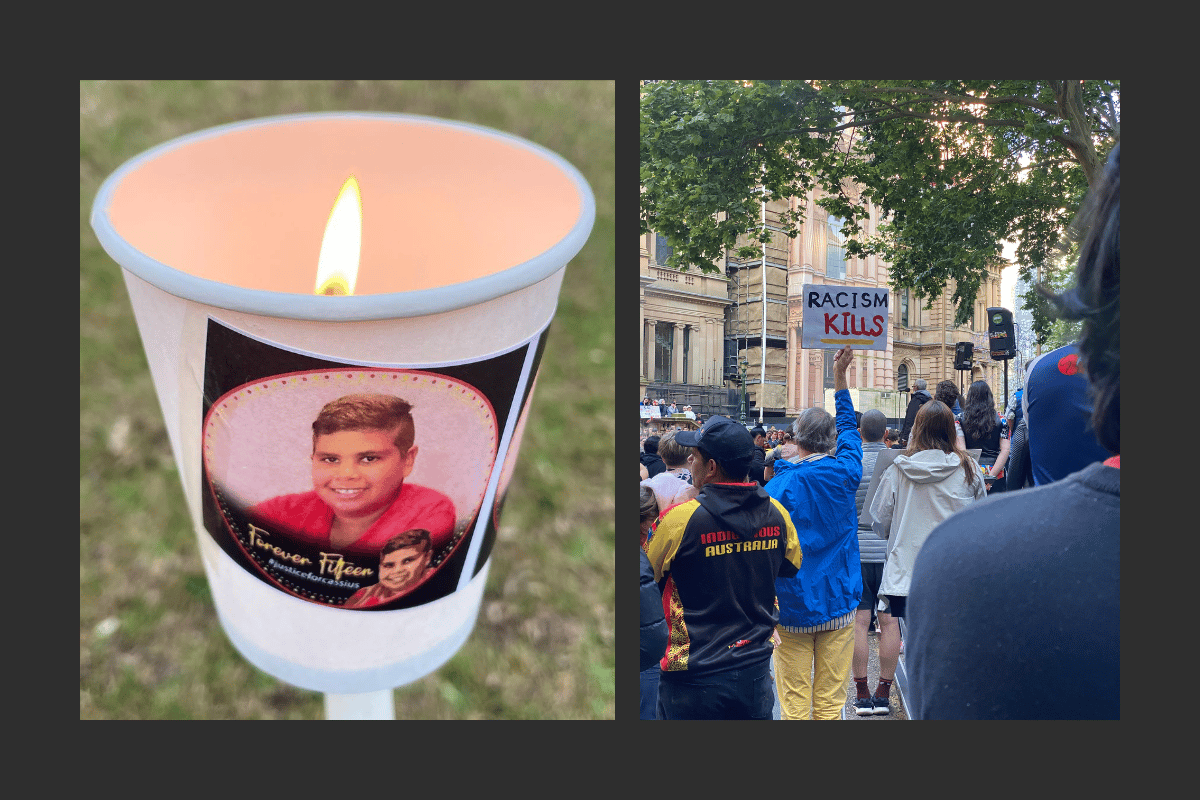
Content Warning: Aboriginal and Torres Strait Islander readers are advised that the following article contains images, names and voices of people who have died.
Going to Cassius Turvey's vigil in Sydney, I expected to be moved. And with more than 2,000 people in attendance, the emotion was palpable. So was the hurt.
It was a vigil filled with stories, candles, tears and powerful words. All to mark the life and death of Cassius Turvey. For myself, a non-Indigenous Australian, it was a space to listen. To acknowledge. And also to learn.
It began with a Welcome to Country and a smoking ceremony. Photos and posters could be seen throughout the crowd, images of Cassius front and centre. His smile on display for everyone to see.
As Lizzie Jarrett, the MC of the vigil, said to the crowd: "That boy represented our hopes, our dreams, our future. He represents every single son, every brother, right across this vast continent. And we won't ever forget it."
Another speaker was Nessa Turnbull Roberts.
"All that Cassius' mum is asking for is love. All she's asking for is for us to acknowledge that children matter. All she's asking is that a child got to come home safe. These stories are not new. This pain is not new. Enough is enough."
Nessa's words filled Town Hall as she stood at the top of the steps. On the steps around her sat dozens and dozens of Indigenous children – some wearing t-shirts with the Aboriginal flag emblazoned on the front, others wearing their school uniforms. All held candles in their hands listening intently to what was being said.
"There are lots of Black mothers here today. Black mothers put this event together. Black mothers bring people together. Black mothers have the same fear for these children that are sitting in front of me right now," Nessa said, who is a Bundjalung Widubul-Wiabul woman.

Top Comments